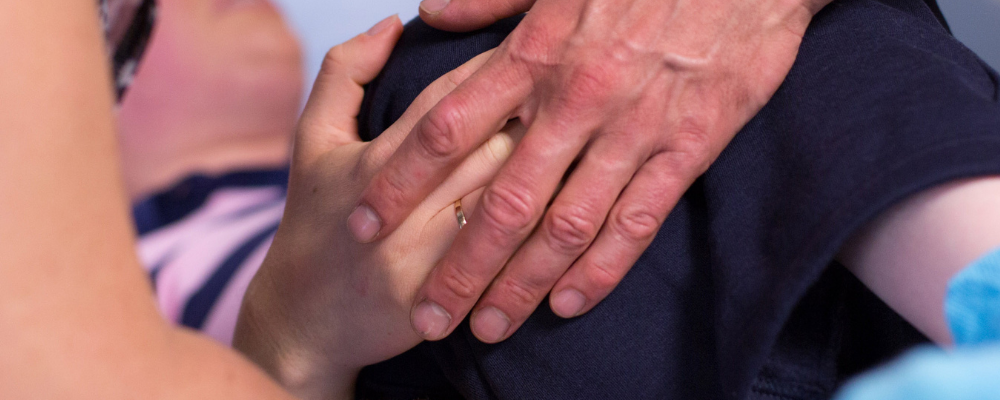Sixty five percent of people with cerebral palsy say health services in Scotland are not meeting their needs.
A survey carried out by us in November 2021 revealed that only 11% of people with cerebral palsy or their families said health services were meetings their needs ‘fully’ or ‘a lot’.
Forty five percent said their healthcare needs are ‘not at all’ being met, while a further 20% said their needs are being met only ‘a little’.
Get involved – support our campaign
Other key findings that emerged from the survey (see further details of the survey results):
- Although regular physiotherapy is one of the most important treatments for cerebral palsy, 34% of those surveyed said they see a NHS physiotherapist less than once a year.
- 40% said they were using private physiotherapy – accessed through charities or paying for private treatment – to compensate for the lack of NHS care.
- 33% said they see an NHS occupational therapist less than once a year.
We are calling on the Scottish Government to improve healthcare services for people with cerebral palsy, and are asking for the government to develop and adopt SIGN guidelines, which would include giving adults with cerebral palsy the right to an annual review with a specialist.
Commenting on the survey findings, Cerebral Palsy Scotland CEO Stephanie Fraser, said:
“This survey highlights one of the biggest ongoing issues for people with cerebral palsy and their families – that there is a huge disconnect between the level of care and support people with CP currently receive and what is required to keep them well.
“Healthcare services for adults with cerebral palsy are of particular concern. Adults with cerebral palsy don’t get the same level of care as people with other life-long conditions. There are no dedicated cerebral palsy specialists for adults, and no joined-up healthcare pathways.
“In our survey, 86% said their transition from children’s to adults’ health services was ‘very poor’ or ‘poor’. Our therapy team regularly see adults coming to us for treatment in their 50s or 60s who haven’t been seen by a physiotherapist since they were 18.
“We want to make clear we are not criticising NHS staff who are working phenomenally hard in difficult circumstances as we emerge from the COVID pandemic. Rather we are calling on the Scottish Government to acknowledge that this is a totally unacceptable situation and asking them to lead on making the necessary investments and systemic changes to improve health care services for the cerebral palsy community. This has been a huge problem for decades but has been further exacerbated by the effects of the pandemic. People with cerebral palsy – both children and adults – deserve better.
“As a first step, we are asking the Scottish Government to develop and adopt SIGN guidelines for adults with cerebral palsy. We want these to be equivalent to the NICE guidelines for adults with CP that exist for the rest of the UK, and to include the right to an annual review with a specialist in CP. This would be a positive start in achieving parity of healthcare to that experienced by people with other long term conditions.”
Janis Love is mum to Brett Brough (22), who has diplegic cerebral palsy and is a full-time wheelchair user. Brett also has a learning disability and hearing loss. They live in Dundee.
“Brett went to a special school until he was 19. When he was at school, he had a robust coordinated support plan, and access to regular physiotherapy, rebound therapy and swimming. When he left school in March 2020, that all stopped. We haven’t had any hands-on therapy since then, and had only two or three visits from healthcare professionals which were just to check his specialist equipment.
“I feel very isolated right now. I only get support from health services for Brett once something has gone wrong, and only if I push for it. Providing such a poor service means that, as people with cerebral palsy get older, their health and wellbeing is only going to get worse, causing even more problems for the NHS.”
STV news highlighted the campaign on February 11. You can read the related news article, and watch a clip from the news below:
How you can support our campaign
You can support our campaign to improve health care services for people with cerebral palsy by writing to your local MSP.
- Find your local MSP via the Scottish Parliament website
- Download our template letter
- If you can, personalise the letter by including information or stories highlighting why health services are not meeting your (or the person with cerebral palsy’s) needs. Citizens Advice Scotland has helpful advice and guidance on how to write a letter to an MSP.
- Send your letter to your MSP in the post, or you can email them.
